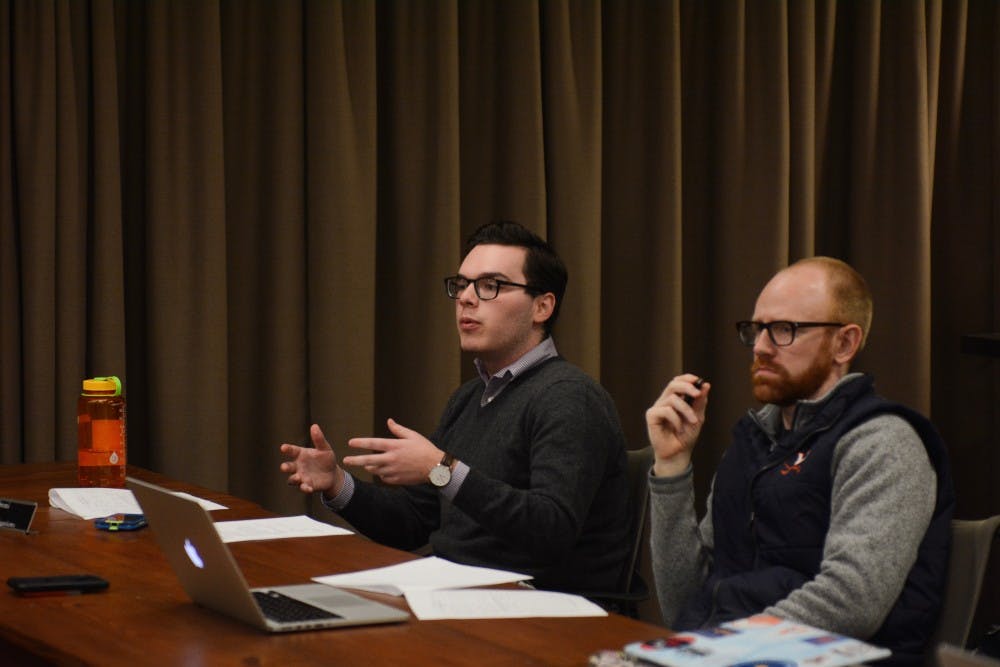The Honor Committee unanimously adopted changes to the Contributory Health Impairment procedures and bylaws Sunday after receiving approval from the Office of University Counsel. The new changes took effect pending University Counsel approval on Oct. 28, but now are officially included in the Honor Committee’s documents.
A variety of reforms have been made to the CHI policy within the past couple of months — including changing the name of the policy from the Contributory Mental Disorder process into the Contributory Health Impairment process to make it more inclusive by acknowledging that the current policy also allows for conditions that are not explicitly mental, such as a brain tumor according to Streeter, but could still contribute to committing Honor offenses.
The Committee has approved a new timeline in which students in the process will have to adhere to if their CHI claim is to be considered in an Honor trial. The Committee has also approved the removal of the “Admission of Act” portion of the policy which will remove the requirement that an accused student admit guilt to an honor offense before being assessed for a CHI.
The Office of University Counsel recommended to the Honor Committee that they remove the sunset clause — a clause requiring the Committee to vote to re-approve the changes in March 2019 — but the Committee decided to keep the clause.
“Last week we had a conversation about removing the sunset language because that’s what was recommended by [U.Va.’s] general counsel,” Medical student and Honor Chair Ory Streeter said. “They still recommend against the sunset language, but were fine with it being there.”
The Committee also tabled a vote on adding a third Engineering School representative to the executive board to a later meeting, pending further discussion. To add another Engineering representative, the Committee would have to vote to change the Honor Constitution, which would be voted on by the University student body in the Spring 2019 elections.
“This is a change to the entire Honor Committee constitution,” Streeter said, “which would require 10 percent of the entire student body to vote in the election, then 60 percent of those individuals to vote for it.”
Proponents of adding another Engineering representative said that the added representation would help the Committee handle the number Engineering cases which is proportionally larger than the Engineering School’s enrollment.
According to data collected by the Honor Committee, the Engineering School produced 27.5 percent of Honor cases up to Nov 8, 2018, while the school only makes up 15.5 percent of the University’s enrollment.
The additional representative would help the Committee provide representation from the same school as an accused student as Executive Committee members cannot participate in Honor trials, according to Peyton Sandroni, a fourth-year Engineering student and vice chair for investigations .
“[With] the population of student who go through Honor, it would be advantageous to have more students on Honor who can sit on cases in case we have two Engineering members who are on executive,” Sandroni said. “If it’s a mixed or all committee panel you have to be guaranteed people who are in your school [are on the panel].”
Committee members hesitant about adding another representative cited concerns about inadvertently moving to a proportional representation system.
“If the Engineering School or another school continues to grow and get more cases, do we keep assigning new representatives?” Law School representative Owen Gallogly asked.
Derrick Wang, a third-year College student and vice chair for community relations, emphasized the need for the Committee to have a discussion about the future makeup of representatives.
“There is kind of a long term concern here. We need to have an actual apportionment system, or just assign [representatives] by set numbers,” Wang said. “It would need to be something we would need to have a conversation about — what would an apportionment system look like.”
Other members proposed approving the measure to be put in the University-wide ballot for the spring, under the logic that the student body is the deciding factor ultimately.
“The only reason not to make this into a referendum is if we need to do more research,” said Caitlin Knowles, a fourth-year Commerce student and representative . “Ultimately it’s not our decision — it’s up to the student body.”
Committee members also proposed that the additional third Engineering representative be a graduate student, a change which would require an amendment to the Engineering School’s constitution.
The Committee reached out to the Engineering Student Council, but is waiting for a response according to Sandroni. Some members of the Committee proposed waiting for a response before moving to a vote.
“I do think initiating this conversation with Engineering Student Council is a significant reason to delay,” said Steven Seril, a fourth-year Batten student and representative. “It’s reasonable to state that having graduate engineering students would help students going through the process.”







